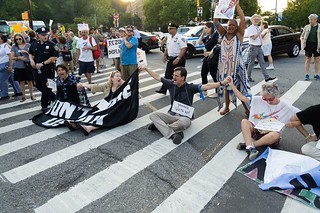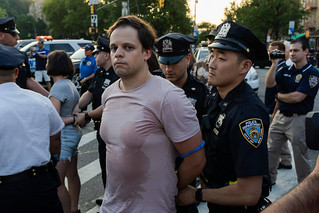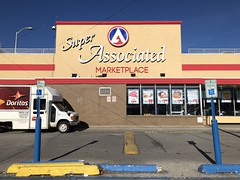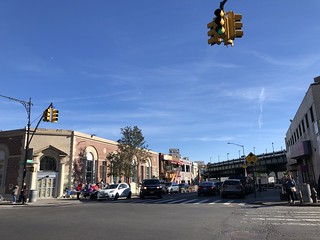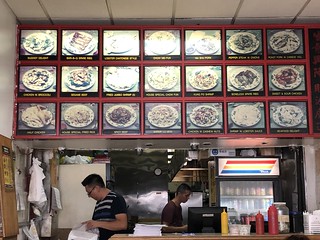Inwood Community Mobilizes Following Rezoning Vote
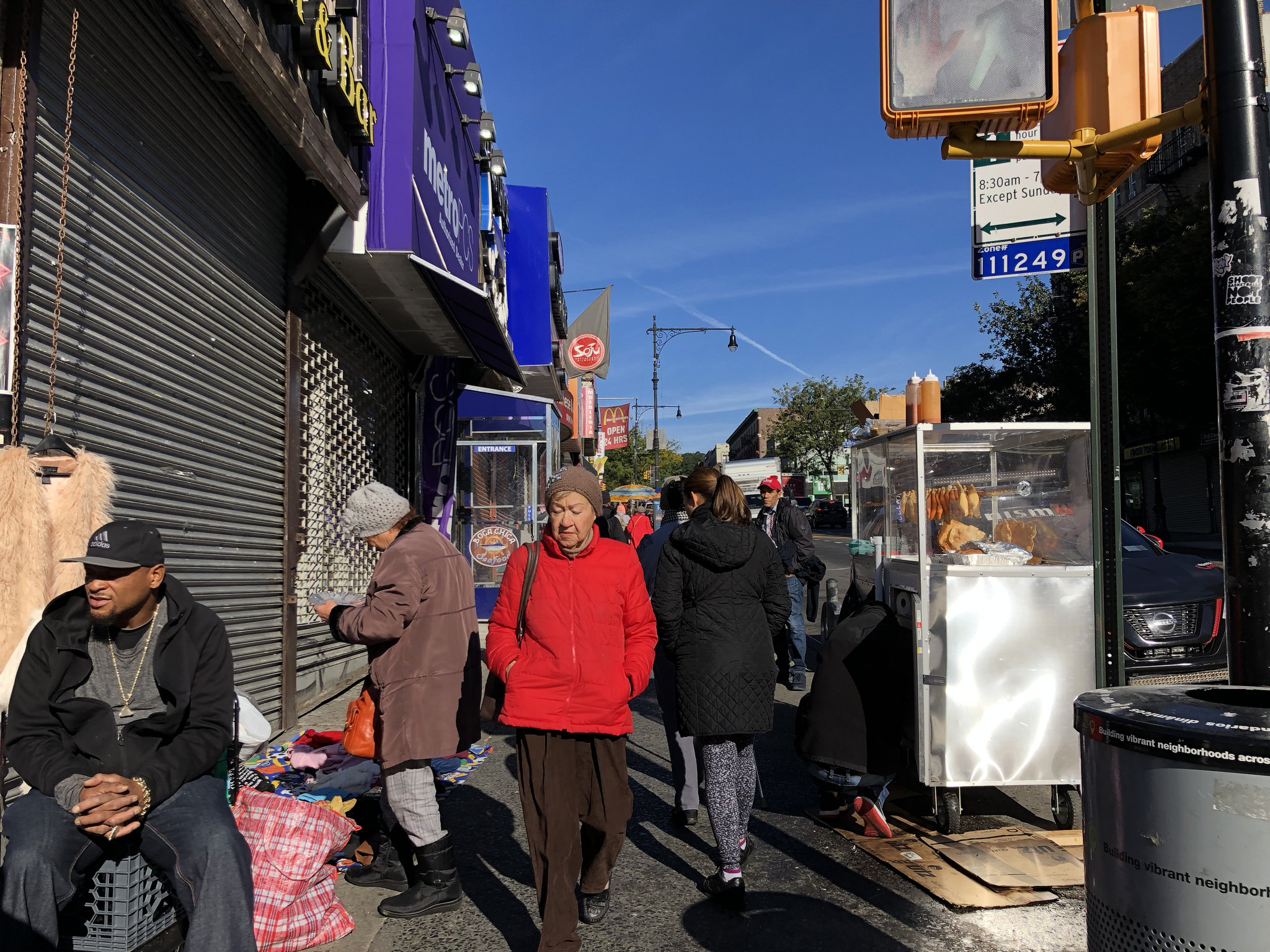
Inwood Intersection in Northern Manhattan. Inwood is known as the last affordable neighborhood in Manhattan
Inwood Residents Fight for Affordable Integrity Amidst Passage of a 60 Block Rezoning
When residents of Inwood were asked how they felt following news that their community would be rezoned, answers such as “betrayed,” “not surprised,” and “enojado” were most common. Despite this community pushback, a nearly unanimous, 43-1 vote was passed by the City Council to rezone nearly 60 blocks of the Upper Manhattan neighborhood.
Under a rezoning, previously assigned land is reassigned to a different planning zone and subjected to different restrictions. The Inwood upzoning is intended to stimulate residential and commercial growth in Inwood’s industrial areas, while also developing new affordable housing units and renovating the waterfront and parks.
But with a quarter of Inwood residents living below the poverty line, gentrification and displacement are leading concerns among residents. Weeks after its passage, plans for the neighborhood weigh on its residents who fear new housing developments built under the rezoning will replace apartment buildings and mom-and-pop shops that have been around for generations.
Chris Nickell, community activist and member of Northern Manhattan is Not For Sale Coalition, has served as a lead figure in the rezoning fight. They have opposed the plan since its 2015 proposal and helped spearhead protests, press conferences and a block party in the days before the rezoning passed.
“Part of what drove me to be an activist is because I think we owe it to the community. To those of us that have the time and the resources, owe it to the community to stand up,” said Nickell.
From simple exchanges on the street, to meetings in the basement of the Church of the Good Shepherd, Nickell has continued to keep community members informed of their rights in a myriad of ways since their move to Inwood six years ago.
According to Nickell, residents are especially alarmed that noticeable changes and attempted projects were underway in the neighborhood before the vote even passed.
Nickell said offers were made to claim St. Jude’s Church property days before the vote passed and real estate developer, Taconic began drilling in the parking lot of a Super Associated grocery store a week before the bill reached the City Council.
“We had people living around here who would tell us, ‘You know they’re doing test drills to see what’s underneath so that they can plan to develop.’ And when we were speaking with Ydanis in negotiations about the rezoning, he mentioned they had plans for what I think is a 23-story building,” said Nickell.
Nickell also raised concerns about the condition of lots such as the Super Associated.
“A lot of these sites are very contaminated brownfields and they’re gonna need either illegal development or massive remediation which is costly,” said Nickell. “And so when we hear the promise of 100% affordable housing on sites like this, the math doesn’t add up.”
But affordable housing is exactly what the city is promising according to Councilman Rodriguez. Under the rezoning, 4,100 units of affordable housing will be created and preserved. Of those, at least 925 of the units will be constructed on city-owned land and at least 675 are proposed on private land as part of the Mandatory Inclusion Housing program (MIH). MIH requires developers to include a certain number of affordable apartments in otherwise market-rate developments.
These brownfields are the remnants of previously developed land, either industrial or commercial, many of which functioned as empty lots for years. Currently, they present real or perceived environmental contamination.
Concerned residents such as Nickell, pose the affordable housing under the plan is also not what the neighborhood would classify as “Inwood affordable.” They said the neighborhood’s residents should not be held to the same standards as the rest of the borough.
According to AM New York, the annual median household income in Inwood is $41,687 where the majority of residents work in cleaning and maintenance or sales. Under the rezoning, the true affordability of the affordable housing options is in question.
Based on the city’s affordable housing standards, under the Inwood medium income of $41,687, including benefits, a two-bedroom apartment for a family of three costs approximately $1,045 a month which leaves less than $2,428 to cover all other monthly expenses, including utilities, transportation, groceries, cable, phone service, child care and more. In 2016, New Yorkers spent an average of $566 per month on food and $118.50 a month on public transit, according to the U.S. Bureau of Labor Statistics, and the MetroCard has gone up to $121 for an unlimited monthly ticket.
In a neighborhood where 74 percent of the population is Hispanic, Nickell said a staggering number of documents which itemized these affordable housing plans, were only printed in English, making it that much easier for the community to be shrouded from the truth.
Under the rezoning, small businesses could also bear the brunt of displacement. Uneasy owners, specifically along 207th and Broadway, joined residents in voicing concern for their family-owned establishments.
Jon Yeung, owner of “U” Like Chinese Restaurant next to the A train on Broadway echoed these concerns and said his property taxes have steadily increased over the past couple of years. Since the rezoning passed, Yeung fears he could be priced out for good.
“I was paying about $12,000. This year it’s almost up to $20,000 just for the property taxes. I think I’m doomed,” said Yeung.
Residents and small business owners are requesting itemized restrictions, such as caps on the height of new developments, in order to preserve the neighborhood’s affordable integrity.
Nickell said though the community was left out of the conversation for years, they and their outraged neighbors are making themselves heard now.
“All we have are ourselves and our bodies and so we have to take care of those things to continue this fight,” said Nickell.
